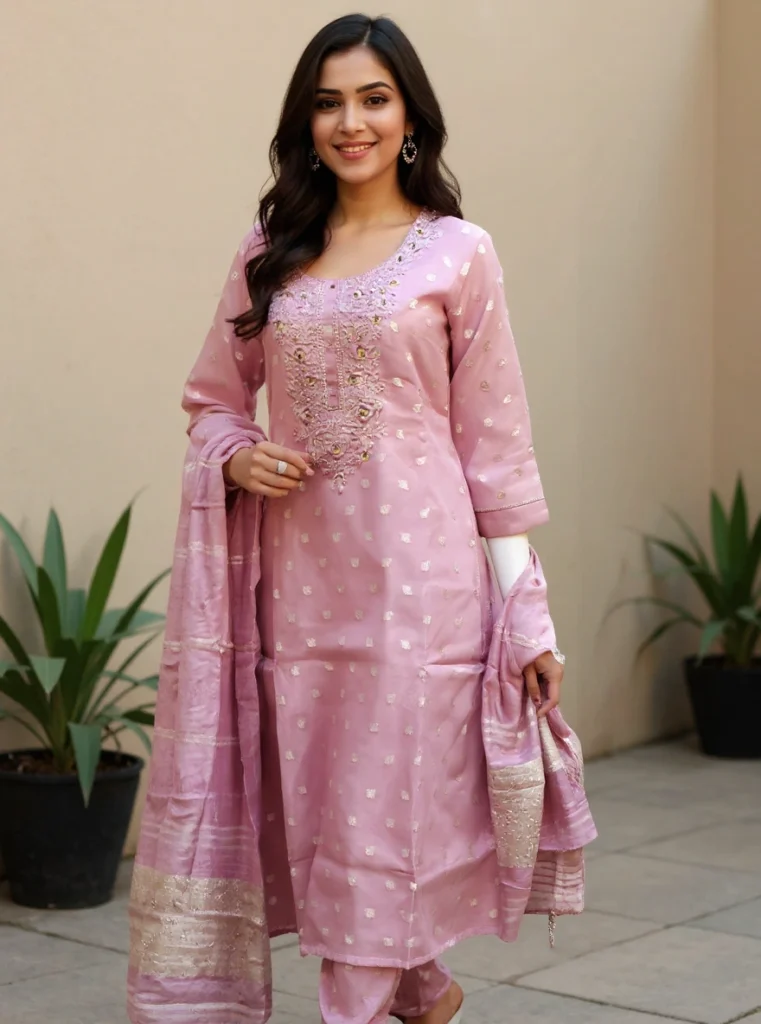Eco-Friendly Fashion in India: How Better Fashions Champions Sustainable Style in 2025
The world of fashion is changing fast—no longer is it just about looking good, it’s about feeling good with every choice you make. In 2025, sustainability isn’t a buzzword; it’s a necessity. At Better Fashions, we’re proud to be among the frontrunners leading Lucknow and India into an era of eco-conscious style.
The Need for Sustainable Fashion in India
India, with its ancient craft traditions and booming new-age consumer market, faces a unique challenge. The country loves color, innovation, and global trends—but its textile and apparel industry has also contributed to environmental issues through water waste, chemical dyes, and fast-fashion cycles. Eco-friendly fashion counters these trends by focusing on mindful manufacturing, ethical sourcing, and responsible consumerism.
Lucknow, the city of nawabs, has always revered handwork, slow fashion, and natural textiles. Now, that legacy is being updated for the 21st century, merging the elegance of the past with the demands of a more conscious present.
What Makes Fashion Sustainable?
Sustainable fashion goes far beyond organic cotton shirts or hemp bags. At its core, it means:
Using biodegradable, natural, or recycled fabrics.
Employing local artisans for fair wages and supporting traditional crafts.
Reducing chemical dyes and opting for plant-based or natural alternatives.
Minimizing energy consumption in manufacturing and transport.
Offering quality products that last beyond one season.
How Better Fashions Makes a Difference
At Better Fashions, sustainability is stitched into every collection. Here’s how:
1. Conscious Sourcing
We work directly with farmers and weavers, ensuring that our cotton, linen, and khadi come from pesticide-free fields. Our dyeing process uses plant-based colors—think neem green, turmeric yellow, and indigo blue—harmless to both your skin and the soil.
2. Supporting Local Artisans
Lucknow’s famous chikankari and zardozi are at risk as machine-made copies flood the market. We exclusively collaborate with regional artisans, not only to keep hand-embroidery alive, but also to provide stable income and better working conditions for hundreds of families.
3. Less is More
Our designs focus on timelessness and versatility. Instead of items you’ll wear once, we offer pieces you can dress up or down for years—helping reduce the fast-fashion waste cycle.
4. Packaging and Production
We avoid plastic—your orders arrive in reusable cloth bags or recycled paper boxes. In our workshops, we recycle leftover fabric scraps into accessories, masks, or quilts, ensuring nothing goes to waste.
5. Community Initiatives
Sustainability also means educating customers. We regularly hold workshops on wardrobe upcycling, fabric care, and the environmental impact of fashion choices—empowering buyers to make informed decisions.

Why This Matters—For You and the Planet
For consumers: You get breathable, natural fabrics that are better for your skin and health.
For artisans: Sustainable practices protect their crafts and dignity.
For the environment: Less waste, fewer pollutants, and a smaller carbon footprint.
When you shop with us, you become part of a positive cycle—one that respects tradition, nurtures talent, and considers the earth in every step.
How You Can Join the Green Revolution
Choose quality over quantity; invest in versatile, well-crafted pieces.
Look for labels or store information about fabric sourcing and artisan involvement.
Care for your clothes to make them last longer.
Don’t hesitate to ask brands (like us!) about their sustainability story.
The Road Ahead
Eco-friendly fashion in India is just getting started, and Lucknow is quickly emerging as a hub for stylish sustainability. At Better Fashions, we’re committed to growing greener every year—expanding our range of organic, recycled, and artisan-crafted products and promoting conscious choices among a new generation of shoppers.
When you step out wearing a Better Fashions outfit, you’re not just making a style statement—you’re telling the world that fashion can be both fabulous and responsible.
Join us in making Lucknow and India’s future brighter, cleaner, and more beautiful—one eco-friendly outfit at a time.
